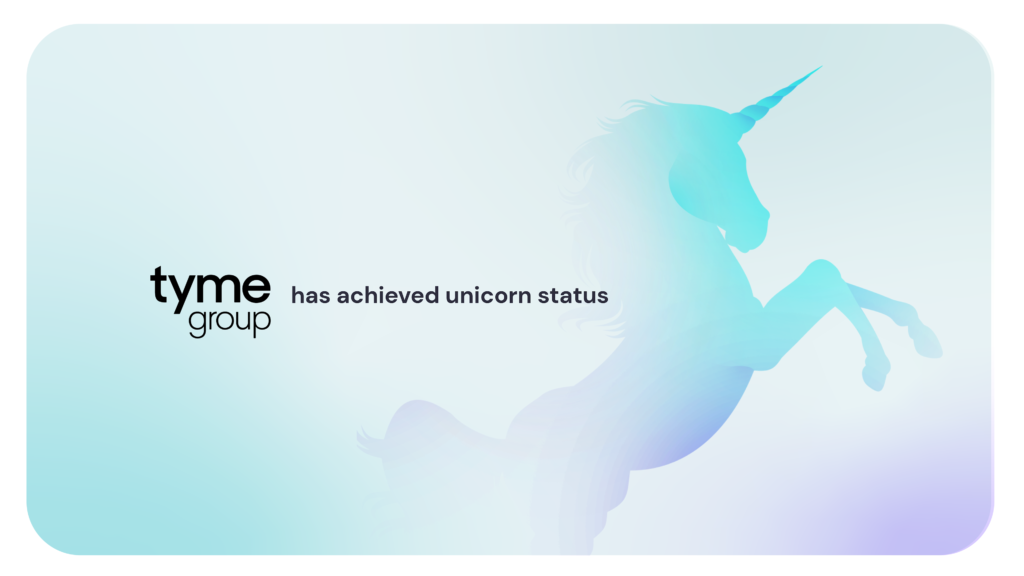Brad Hargreaves, founder and editor of Thesis Driven, highlights the unique challenges the term “PropTech” faces as an industry category. In a compelling discussion, Brendan Wallace, CEO & CIO of Fifth Wall, joins Brad to explore how defining distinct segments within PropTech could help operators and entrepreneurs raise capital more effectively. Whether it’s a vertical software business catering to real estate companies or a capital-intensive, asset-heavy real estate venture with a fresh operating model and brand, clarity in categorization can unlock new funding opportunities.
CNBC Africa – Focus On: Unlocking Africa’s Fintech Potential, Growth, Inclusion, and Innovation by 2030
Africa continues to solidify its position as the world’s fastest-growing fintech market, driven by South Africa, Nigeria, Egypt, and Kenya. With an annual growth rate of 32%, the sector is projected to reach $65 billion by 2030. This episode of Focus On highlights strategies for strengthening the continent’s economy through financial inclusion, digital payments, and initiatives such as the African Fintech Accelerator Programme. Aida Diarra, Senior Vice President of Visa Sub-Saharan Africa, shares her insights with CNBC Africa.
Several U.S. States Explore Strategic Bitcoin Reserves: Insights from CNBC Crypto World
Rex & Simon Discuss the State of Fintech 2025
In this episode of “Rex & Simon Talk Fintech,” they dive into Simon’s comprehensive 113-page report on the state of fintech in 2025, created in collaboration with Jevgenijs Kazanins of Popular Fintech. They explore how hyperscalers like Revolut and Robinhood are challenging traditional banks, the potential of AI to unlock 90% of the $30 trillion financial services market, and the fierce competition in the wallet wars. The discussion also covers embedded finance, stablecoins, real-time payments, and the global rise of Neobanks.

You can read Simon Taylor’s State of Fintech 2025 report at Fintech Brainfood. Tune in to discover why fintech’s evolution is far from over and what the future might hold for this dynamic industry.
10 Fintech Trends to Watch in 2025 According to Citi
Citi analysts foresee fintech entering a “dynamic new phase” in 2025, building on Q4 2024 improvements after a year of stabilization. Despite fluctuations in the five years since the pandemic began, the sector’s core drivers—digitization, modernization, and enablement—remain robust. Here are the 10 key developments Citi analysts, led by Andrew Schmidt, predict:
- Strong Fintech Performance:
Following the U.S. election, approximately 66% of Citi-covered fintech stocks outperformed the market, compared to just 31% earlier in the year. Broader investor interest across market caps is a promising indicator for 2025 growth. - Bank and Credit Union Consolidation:
M&A activity is expected to accelerate, surpassing historical averages. Beneficiaries include Fidelity National Information (NYSE:FIS) and Q2 Holdings (NYSE:QTWO), as merged entities adopt their technologies. Alkami Technology (NASDAQ:ALKT) is well-positioned, while Jack Henry & Associates (NASDAQ:JKHY) could see gains depending on specific pairings. - Fintech M&A Activity Increases:
Analysts anticipate smaller, manageable transactions, with a few larger deals possible. Rising stock valuations may encourage sales, particularly among function-based companies. Sponsors holding assets could act on opportunities, while a stable or declining interest rate environment might drive acquisitions, benefiting profitable firms with low debt. - Capital Markets Rebound:
Increased activity in capital markets could unlock new fintech opportunities. While sustainable, profitable growth remains a focus, private and public companies may pivot to growth investments later in 2025 and beyond. - Transformation Success in Focus:
Companies like PayPal Holdings (NASDAQ:PYPL) and Block (NYSE:SQ) are progressing in their strategic transformations. Fidelity National Information (NYSE:FIS) is advancing, though with a longer timeline, and Global Payments (NYSE:GPN) is in the early stages of repositioning. - Generative AI Expands:
Revenue opportunities tied to generative AI and data management are expected to grow gradually. Companies poised to benefit include Clearwater Analytics (NYSE:CWAN), Alkami (NASDAQ:ALKT), Q2 Holdings (NYSE:QTWO), Jack Henry (NASDAQ:JKHY), Mastercard (NYSE:MA), and Visa (NYSE:V). - Subdued U.S. Migration:
Restrictive border policies and anti-immigrant rhetoric are likely to limit migration. Stocks tied to remittance services, such as Western Union (NYSE:WU), Euronet (NASDAQ:EEFT), and Remitly (NASDAQ:RELY), are expected to be impacted. - U.S. Policy Uncertainty:
Analysts remain watchful of consumer health and potential adverse policy effects on spending and cross-border trade. These factors remain unpredictable but could influence the fintech landscape in 2025. - Deregulation Opportunities:
Companies with significant exposure to deregulation themes include Marqeta (NASDAQ:MQ), Visa (NYSE:V), Mastercard (NYSE:MA), Alkami (NASDAQ:ALKT), Q2 Holdings (NYSE:QTWO), Jack Henry (NASDAQ:JKHY), Fiserv (NYSE:FI), Fidelity National Information (NYSE:FIS), PayPal (NASDAQ:PYPL), and Block (NYSE:SQ). - Another Digital Asset Cycle:
Enhanced regulatory clarity may boost digital asset use cases, especially Stablecoins in cross-border and wholesale trade. Analysts are closely monitoring these developments for broader applications.
Citi’s comprehensive analysis highlights opportunities and challenges shaping the fintech sector in 2025, underscoring its resilience and potential for innovation.
American Fintech Council Policy Summit 2024-BaaS to the Future
Dive into the dynamic world of Banking-as-a-Service (BaaS) and uncover its future trajectory. This session will explore key topics such as innovative partnerships, the role of brokered deposits, and emerging opportunities reshaping the financial ecosystem. Led by industry experts, the discussion will highlight strategies and trends driving BaaS innovation and its impact on financial institutions, fintechs, and customers.
Session Title: AFC Policy Summit 2024 | BaaS to the Future: Partnerships, Brokered Deposits and So Much More
Panelists:
- Jonah Crane: Partner, Klaros Group
- Alex Johnson: Founder, Fintech Takes
- Jason Mikula: Head of Industry Strategy, Banking & Fintech, Taktile
- Simon Taylor: Head of Strategy, Sardine
Moderator:
- Kiah Haslett: Banking and Fintech Editor, Bank Director
Nubank Leads Capital Raise for Tyme, Latin America’s Newest Unicorn
Quote
- Tyme Group has successfully raised US$250 million, the largest fintech raise this year in South-East Asia, valuing the business at US$1.5 billion
- Tyme welcomes strategic investor Nubank, one of the world’s largest digital financial service platforms, to fuel next phase of growth in South-East Asia
- With established operations in South Africa and Philippines, Tyme now gears up for expansion into Vietnam and Indonesia
Singapore – 17 December 2024 – Tyme Group, the multi-country digital banking group head-quartered in Singapore with 15 million customers in Africa and South-East Asia, today announced that Nubank, has joined its shareholder base through a strategic investment during its Series D Capital Raise. Nubank is one of the world’s largest financial services platforms with over 110 million customers.
Having completed its latest investment round, Tyme Group has now also firmly achieved unicorn status after securing a total of US$250 million in funding for a total valuation of US$1.5 billion. Tyme’s oversubscribed series D capital raise was led by Nubank, which invested US$150 million, with M&G’s Catalyst subscribing for US$50 million. Existing shareholders are investing a further US$50 million. Tyme’s investors includes the Founders, African Rainbow Capital, The Ethos AI Fund, Apis Growth Fund II (‘Apis’), Tencent, The Gokongwei Group, British International Investment (BII), Norrsken 22, Blue Earth and Lavender Hill Capital Partners.
The Nubank partnership solidifies Tyme’s position within digital banking and sets the stage for the latter’s growth in Southeast Asia. This partnership brings significant expertise and resources to Tyme, positioning the company well to expand its market presence.
“Nubank transformed financial services in Brazil. We are excited by the value that Nubank’s thought partnership and advice can bring to Tyme particularly in areas such as data analytics, credit risk management, product development and marketing – levers we believe are key to achieving leadership in our markets. This is a moment of great significance for Tyme,” said Coen Jonker, Co-Founder and CEO of Tyme Group.
David Vélez, founder and CEO of Nubank, added: “Since the beginning of Nubank, we have believed that the future of financial services globally is of digitally-native companies. We have met dozens of teams across different geographies, and we think that Tyme Group is extremely well-positioned to be a digital bank leader in Africa and Southeast Asia. We are excited to work with Tyme to share many of our learnings of scaling this model to hundreds of millions of customers.”
Praveg Patil, Head of Asia Pacific, Impact & Private Equity at M&G, commented: “Investing in innovative companies like Tyme Group is essential for driving financial inclusion in underserved markets. M&G’s Catalyst is able to invest in transformative initiatives that create lasting social impact. Through this investment we are addressing the needs of communities that have traditionally been excluded from the financial system to build a more inclusive financial ecosystem.”
Commenting on the Nubank partnership, Patrice Motsepe, Chairperson of major shareholder African Rainbow Capital, said: “As the long-term strategic shareholder in Tyme, we enthusiastically welcome the partnership with leading global digital bank, Nubank, as we are convinced this will lead to an even higher and significantly accelerated growth trajectory for the multi-country Tyme Group.”
Milken Institute discussion on Digital Finance at Middle East and Africa Summit 2024
The future economy is unfolding now, driven by digital technologies like AI, fintech, health tech, and e-commerce, reshaping industries and redefining possibilities. Innovators are transforming currency, modernizing financial systems, and delivering solutions that span the globe. This revolution will redefine how we live, work, play, and invest. But with great transformation comes critical questions: What opportunities and challenges lie ahead? How can stakeholders—policymakers, investors, regulators, and experts—collaborate to ensure this new economy is inclusive and benefits all?


